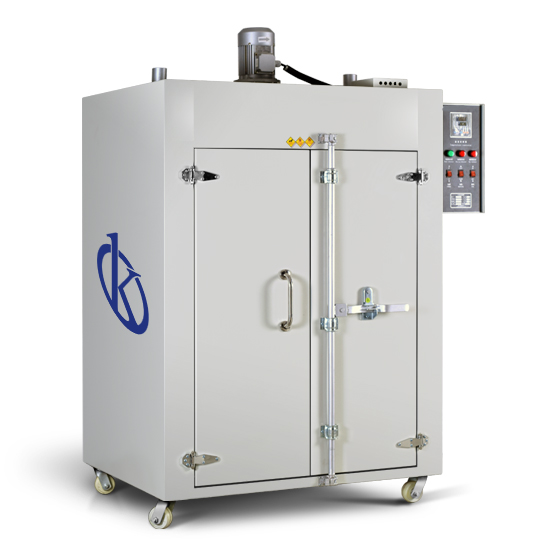The drying ovens is a device used to dry and sterilize glass and metal containers in the laboratory. It is also identified by the name Drying Oven. Manufacturers have basically developed two types of ovens : those operating by natural convection and those operating by forced convection. The ovens usually operate between room temperature and 350 °C.
What is the purpose of the ovens?
The drying ovens is used to sterilize or dry the glass and metal material used in the examinations or tests, which is carried out by the laboratory and comes from the washing section, where it is sent after being used in any procedure. The sterilization in the ovens is called dry heat and is carried out at 180 °C for 2 hours; the glassware, being heated by air at high temperature, absorbs moisture and eliminates the possibility of maintaining any biological activity due to the high temperatures and the times used.
What are the principles of your operation?
Drying ovens usually consist of two chambers: an internal and an external one. The internal chamber is made of aluminum or stainless material, with very good properties to transmit heat; it has a set of shelves or shelves made of stainless steel wire, so that the air circulates freely, there are placed the elements that require to be dried or sterilized by dry heat. It is insulated from the external chamber by an insulating material that maintains the conditions of high temperature internally and delays the transfer of heat to the outside. The outer chamber is made of steel sheet, coated with a protective film of electrostatic paint. The internal heat is generated by electrical resistor assemblies, which transfer the thermal energy to the internal chamber. These resistors are located at the bottom of the ovens. Heat inside the internal chamber is transferred and distributed by natural convection or forced convection (ovens with internal fans).
What services does this computer require?
In order to be used, the drying ovens requires the following:
- Have a work desk with a strong and well-leveled frame.
- Condition around the ovens a free space of at least 5 cm and a space to place the material to be processed in the equipment.
- Install a good electrical outlet with properly sized ground pole to supply the electric power consumed by the ovens, which must comply with national or international electrical regulations used by the laboratory and must not be more than 1 m from the equipment. The typical voltage used is 110 V or 220 V/60 Hz.
- Verify that the electrical circuit has the protective devices required to ensure adequate power supply.
What does it take to operate?
The operation of the ovensrequires taking into account a number of precautions for its correct operation. Among the most important are the following:
- Do not use materials or substances that are flammable or explosive in the ovens.
- Avoid internal spills of acidic solutions or that form corrosive vapors, to avoid corrosion of surfaces and interior shelves.
- Use personal protective items (insulated gloves, safety glasses, and forceps for placing or removing substances or items inside the drying ovens)
How should your Quality Control be?
The quality control in the ovens is a little difficult to perform, because the dry heat sterilization technique has as critical parameters the temperature and time. Spores of Bacillus subtilis, variety Niger, are usually used as biological markers and should be incubated for several hours after the sterilization process. The initial spore load of the biological indicator ranges from 5 x 105 to 1 x 106 . Its effectiveness depends on heat diffusion, amount of heat available, and heat loss. The microbicidal action is conditioned by the presence of organic matter or dirt in the article. Dry heat sterilization should be limited to materials that cannot be sterilized in autoclaves. HERE
Knowing that this equipment is one of the key elements of the laboratory, at Kalstein we put at your disposal sophisticated drying ovens. That’s why we invite you to take a look at one of our available models. HERE

